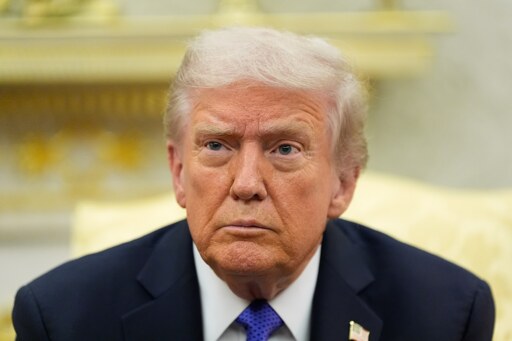- cross-posted to:
- [email protected]
- cross-posted to:
- [email protected]
When asked directly about the 22nd Amendment of the U.S. Constitution, which prohibits any U.S. citizen from serving more than two terms as president, [Steve] Bannon pointed to how there are “many different alternatives” for Trump to stay in office, but did not provide specifics.



So the constitution doesn’t actually prohibit anyone from serving more than 2 terms as president, it prohibits someone being elected to the office of president more than twice (or once if they assumed office for more than 2 years of someone else’s term.
In 2029 Trump could be elected as speaker of the house and then Vance and Dr. Evil resign as POTUS and VP and bam, Trump round 3.
Trump could also be directly elected to the Vice Presidency, though the legal ground there is shakier given the 12th amendment.
Ultimately, SCOTUS would need to weigh in because there is enough ambiguity in the constitution to allow for just the scenarios above.
Good thing SCOTUS is chock full of no-nonsense nonpartisan jurists of the highest integrity.
The 12th Amendment provides that “no person constitutionally ineligible to the office of President shall be eligible to that of Vice President.” As such, anyone barred by the 22nd Amendment from being elected president is also ineligible to serve as vice president, and so a twice-elected president cannot return to power through vice-presidential succession.
If a person is constitutionally “ineligible to the office of President,” they are also skipped over in the presidential line of succession under the Presidential Succession Act (3 U.S.C. §19), which prohibits anyone ineligible to serve as president from assuming the office.
The ghouls in power currently don’t understand or don’t care, and by the time this is tested, it will likely be rubber stamped by the supreme court. But, there’s still value in understanding ahead of time that no, that is not a constitutionally valid approach.
“No it doesn’t. Your statement is now literally incorrect.”
Not quite… the constitutional requirements to be president are simple: Natural born citizen, 35+ years old, and US residency for at least 14 years.
It is an open legal question whether and how the 12th and 22nd interact to determine eligibility. The intent seems clear, but the language of the 22nd very plainly concerns only election to the office, not assumption of it.
Calling it “an open legal question” implies meaningful doubt, but in reality, the text, intent, succession laws, and scholarly consensus have already answered this decisively. The only way this alternate interpretation prevails is a corrupt supreme court. Oh…wait. 🤣
It’s never been tested, so it is an open question. Not many people would be bold enough to try, and I don’t think Trump actually will either, but eventually this will go to the Supreme court.
The main problem is, at the time the 22nd was written, there were plenty of cases of presidents who weren’t elected to the office, so why would the text specify only the electoral pathway if it were meant to cover all possible pathways? Even in the most broad reading (no elected official can become president after having been elected president twice), there remain appointed positions within the line of succession - namely secretary of state - that would completely avoid the election clause.
I agree with you that the intent of the 22nd was to ensure a 2 term limit. Unfortunately the language is not that definitive and the current administration has little concern for following the unwritten rules.
Like everything he’s done every single day since inauguration